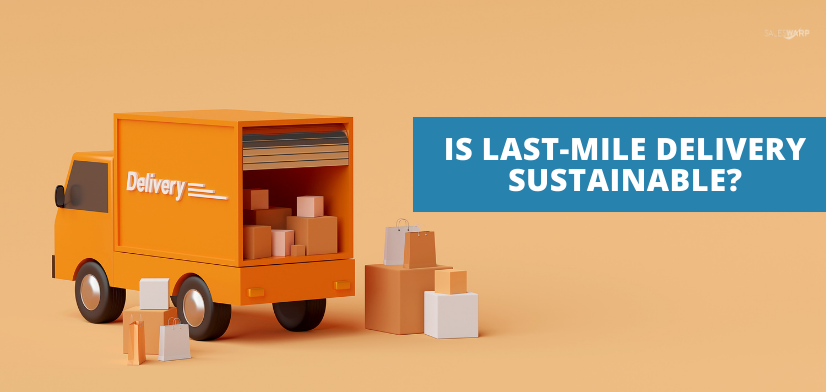Is Last-Mile Delivery Sustainable?

Last-mile delivery is a critical phase in the journey from warehouse to doorstep, but is it sustainable in the long run?
Last-mile delivery is the final phase of the delivery process where packages go from warehouses to doorsteps. With customers demanding quicker fulfillment when online shopping, ensuring a swift final delivery has become a make-or-break factor in gaining and retaining their loyalty. However, the question looms: Is last-mile delivery a sustainable solution for retailers in the long term?
The Booming Last-Mile Sector
The last-mile sector is not merely growing; it’s undergoing a transformative boom. Predictions indicate that the workforce in this sector will expand from 1.7 million to nearly 2 million by 2031, signaling an undeniable surge in demand for swift deliveries. Retail giants, undeterred by concerns over escalating costs, are strategically investing in cutting-edge warehouses, fleets of delivery trucks, and state-of-the-art technology to prioritize last-mile delivery experience.
Financial Viability Through Optimization
While concerns about rising costs linger, retailers are discovering that a well-optimized last-mile process isn’t just a convenience but a financial necessity for long-term viability. By leveraging route optimization, and embracing fulfillment technology, retailers can achieve significant savings while catering to customer demands. This minimizes fuel consumption, reduces vehicle maintenance costs, and enhances the overall efficiency of the order fulfillment process, directly impacting the bottom line.
Strategic Sustainability
Last-mile delivery is not just sustainable; it’s strategic. Positive last-mile experiences make retailers feel more dependable to shoppers, fostering loyalty. The inherent flexibility in last-mile delivery – options like same or next-day delivery, customizable drop-off windows, and weekend deliveries – not only caters to customer convenience but significantly reduces missed delivery attempts, streamlining the entire process.
The sustainability of last-mile delivery hinges on finding tools and strategies that benefit the retailer’s bottom line and customer satisfaction. To enhance last-mile processes, brands must explore solutions that effortlessly integrate into their existing infrastructures.
At the core of this optimization lies a robust distributed order management system. The right DOMS can provide the real-time insights needed to make the last-mile journey optimal. Interested in enabling efficient last-mile delivery? Schedule a free demo to learn how SalesWarp DOMS can help: https://www.saleswarp.com/schedule-a-demo/
